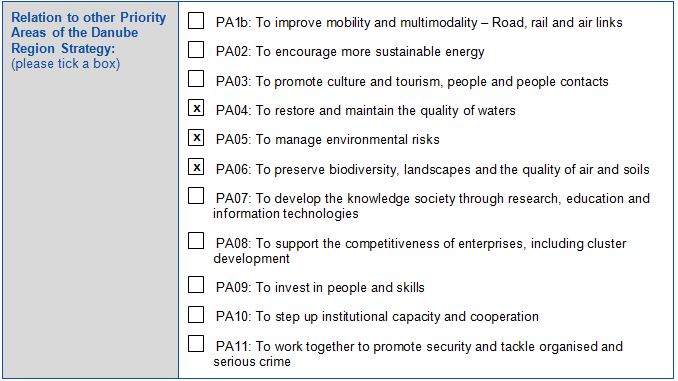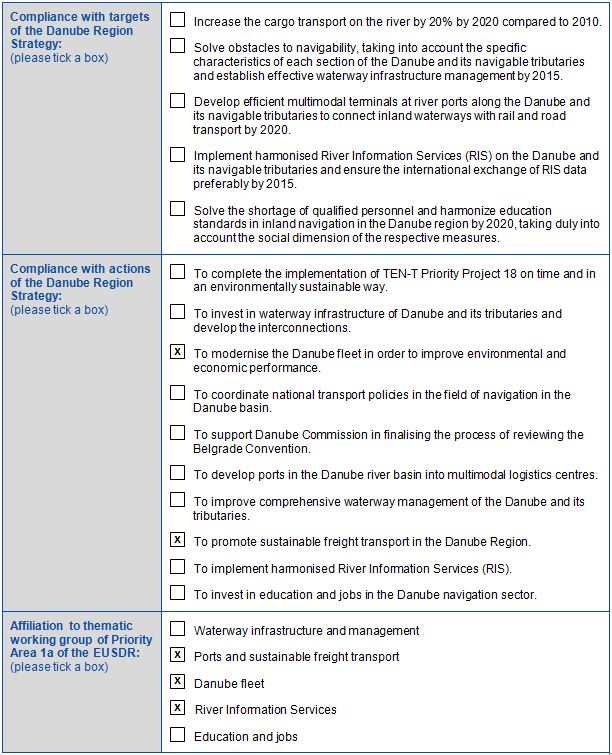BASIC PROJECT DATA
Project ID: PA1A017
NEED AND ADDED VALUE FOR THE DANUBE REGION STRATEGY
Inland navigation is a promising, environmental-friendly transport mode. Since transports are mostly carried out beyond national borders, existing international conventions ensure the smooth operation of vessels on the rivers and unify national laws. Besides fairway related issues, technical requirements for vessels and guidelines for the transport of dangerous goods, the management and handling of ship-borne waste shall follow harmonised and state-of-the-art procedures. Yet, an International Danube Ship Waste Convention (IDSWC) along the Danube is still missing.
OBJECTIVE(S) OF THE PROJECT
Based on the findings of the WANDA project, the main focus of CO-WANDA was on initiative work for a binding treaty, which shall provide clear guidelines for ship waste management along the Danube. The support of national and international authorities, stakeholders and opinion leaders is a driving force for the successful implementation of international cooperation activities. In fact, the harmonisation and adaptation of available ship waste management systems will decrease the risk of illegal discharges of ship waste and thereby support the protection of valuable river ecosystems and the means of livelihoods for future generations in the Danube region.
CONDUCTED PROJECT ACTIVITIES
Advancement of available ship waste management systems
Common strategies for waste prevention (1), cargo related wastes (2) and wastes from passenger vessels (3) which were developed in cooperation with inland navigation companies, help to save resources, raise the awareness of the crew and reduce waste amounts. A comprehensive, user-friendly state-of-the-art ship waste reception facilities network (4) protects the river from illegal waste dumping. Unified procedures for payment of ship waste disposal and usage of River Information Services for communication between vessels, service providers and controlling authorities were part of the conceptual approach to the IDSWC (5).
Implementation of practical tests and pilot activities
Practical tests and pilot actions verify developed technical concepts and allow the gathering of data. Hence, they were developed along the Danube, covering the Upper, Middle and Lower Danube region. Activities comprised testing of the financing model for oily and greasy ship wastes elaborated in WANDA, tests of waste cards for vessels, integration of River Information Services into waste disposal services and connecting financing systems of maritime Danube ports to Danube Inland Waterway System. Data gathered and findings made built the empiric basis for preparation of the IDSWC.
Development of an International Ship Waste Convention on the Danube
A binding international ship waste convention harmonises and coordinates the development of ship waste management systems along the Danube. The initiation and implementation of preparatory activities was developed in cooperation with experts from the field of inland navigation, national administration and public international law. An “International Implementation Board” was formed by experts during the project’s lifetime to press ahead the implementation of the International Danube Ship Waste Convention.
TRANSBOUNDARY IMPACT
All Danube riparian countries were participating in CO-WANDA as project partners except Germany, which was involved as observer organisation. Choosing a comprehensive transnational approach, the efforts made on the national level were harmonised and bundled. In 2013, a new partner from Moldova joined the consortium with ENPI means, thus it was possible to extend investigations to other navigable rivers as well.
PROJECT BENEFICIARIES / TARGET GROUPS
- Authorities dealing with environmental protection, waste management and inland navigation in the Upper, Middle and Lower Danube countries
- Stakeholders of the inland waterway sector, in particular skippers navigating the Danube, ship-owners and fleet operators, port administrations and port operators, waste collection companies and bunkering stations
- International organisations active in the field of environmental protection, waste management and inland navigation and waste management for inland navigation (Danube Commission, CCNR, ICPDR, Sava Commission and the German Bilgenwasserentsorgungsverband)
- Policy makers, their advisers and teams and high ranked civil servants
STATUS AND TIMEFRAME
Start date: 01.10.2012
End date: 30.09.2014
The project is already concluded.
FINANCING
Total budget: 1,820,000 EUR
EU funds: 1,272,527.69 EUR (European Regional Development Fund)
189,361.96 EUR (Instrument for Pre-Accession Assistance)
90,014 EUR (European Neighbourhood and Partnership Instrument) – Moldova
funded by South East Europe Transnational Cooperation Programme (SEE) 2007 – 2013
National funds: 267,982.53 EUR
PROJECT TEAM
Project leader: via donau – Österreichische Wasserstraßen GmbH / Austria
(website: www.viadonau.org)
Address: Donau-City-Straße 1; 1220 Vienna / Austria
Project partner(s):
- VUVH – Water Research Insitute Bratislava / Slovakia
- KTI – Institute for Transport Sciences Non Profit Ltd / Hungary
- RSOE – National Association of Radio Distress-signalling and Infocommunications / Hungary
- APDF – Compania Naţională Administraţia Porturilor Dunării Fluviale S. A. Giurgiu / Romania
- APDM – National Company – The Maritime Danube Ports Administration SA Galati / Romania
- EAEMDR – Executive Agency for Exploration and Maintenance of the Danube River / Bulgaria
- PAV – Public Institution Port Authority Vukovar / Croatia
- PLOVPUT – Directorate for Inland Waterways / Serbia
- RDA South – South Regional Development Agency / Moldova
- DFEAEI – Department of Foreign Economic Activity and European Integration of Odessa Regional State Administration / Ukraine
- EPPO – Environmental Pollution Prevention Office/ Moldova
PROJECT ENVIRONMENT
PROJECT CROSS – REFERENCE
- WANDA – Waste Management for Inland Navigation on the Danube (2009-2012, SEE Transnational Cooperation Programme) (PA1A003)
- Ship borne oily water and waste on the Danube (1999-2000, PHARE)
- SEE MARINER – South Eastern Europe Marine and River Integrated System for Monitoring the Transportation of Dangerous Goods (2011-2013, SEE)
- CODENAV Project (RO)
- Ship-generated waste collection and processing system and response in cases of pollution on the Danube sector managed by the CN APDF SA Giurgiu – RO
- TransWaste – Formalisation of informal sector activities in collection and transboundary shipment of wastes in and to CEE (2009-2012, CEE)
STRATEGIC REFERENCE
- Sustainability is one of the priorities of EU 2020, the European Union’s growth strategy for the current decade. CO-WANDA contributed to sustainable growth by pressing ahead environmental protection, reduction of emissions and cooperation with inland waterway companies and ports. Through the advancement of the sector’s environmental performance, CO-WANDA has enhanced the competitive position of inland waterway transport in the Danube Region.
- Waste prevention and management are one of the four top priorities of EU’s Sixth Environment Action Programme. The preventive approach to waste management is detailed in the 2005 Thematic Strategy on Waste Prevention and Recycling and the Waste Framework Directive (2008) where it has highest priority in the waste hierarchy. Also, member states were required to develop waste prevention programs not later than December, 12th 2013. CO-WANDA had a clear focus on waste prevention on vessels and has supported national waste prevention plans by its findings.
- The European Action Programme for Inland Waterway Transport (NAIADES) aims at promoting inland waterway transport. CO-WANDA has contributed to three out of five defined strategic areas, namely fleet, infrastructure and market.
- The Danube Region Strategy supports the creation of synergies between existing policies and initiatives in the Danube Region. CO-WANDA contributed to the “Improvement of Mobility and Multimodality”; moreover it clearly supports other identified priorities, such as environmental protection or strengthening the region by fostering transnational cooperation.
RELEVANT LEGISLATION
The legislative framework contains relevant EU, international and national legislation out of the fields waste management, water protection, recommendations and rules for handling of waste by inland navigation as well as existing international agreements for management of ship waste, such as the “PROTOCOL ON PREVENTION OF THE WATER POLLUTION CAUSED BY NAVIGATION TO THE FRAMEWORK AGREEMENT ON THE SAVA RIVER BASIN”, Danube Commission´s Recommendations and the CDNI.
EUSDR EMBEDDING
EUSDR COMPLIANCE
OTHER RELEVANT ISSUES
PROJECT REQUIREMENTS
For the project´s success it was considered crucial that the technical operating project partners connect to the responsible authorities in Danube riparian states and that they are involved in the harmonisation and further development of ship waste management along the Danube. This pre-condition was taken into account by the establishment of the “International Implementation Board”. Of similar importance was the involvement of the international observers, who have been deeply involved in the development of the CO-WANDA project proposal itself. From the international observers, feedback regarding strategic matters was required.
FOLLOW – UP PROJECT
Within CO-WANDA, the development of national strategies as well as the elaboration of a transnational Joint Action Plan for common follow-up measures was foreseen. Each country had to identify, which steps have to be taken (technical, legal, financial) to implement the requirements of the International Danube Ship Waste Convention. A possible funding source is the Danube Programme, which is a follow-up of the South East Europe Transnational Cooperation Programme.
META DATA
Data provided by: Hans Berger (via donau – Österreichische Wasserstraßen-Gesellschaft mbH, Austria) – 23.01.2012
Last update by: Hans Berger (via donau – Österreichische Wasserstraßen-Gesellschaft mbH, Austria) – 24.01.2014
Download pdf




